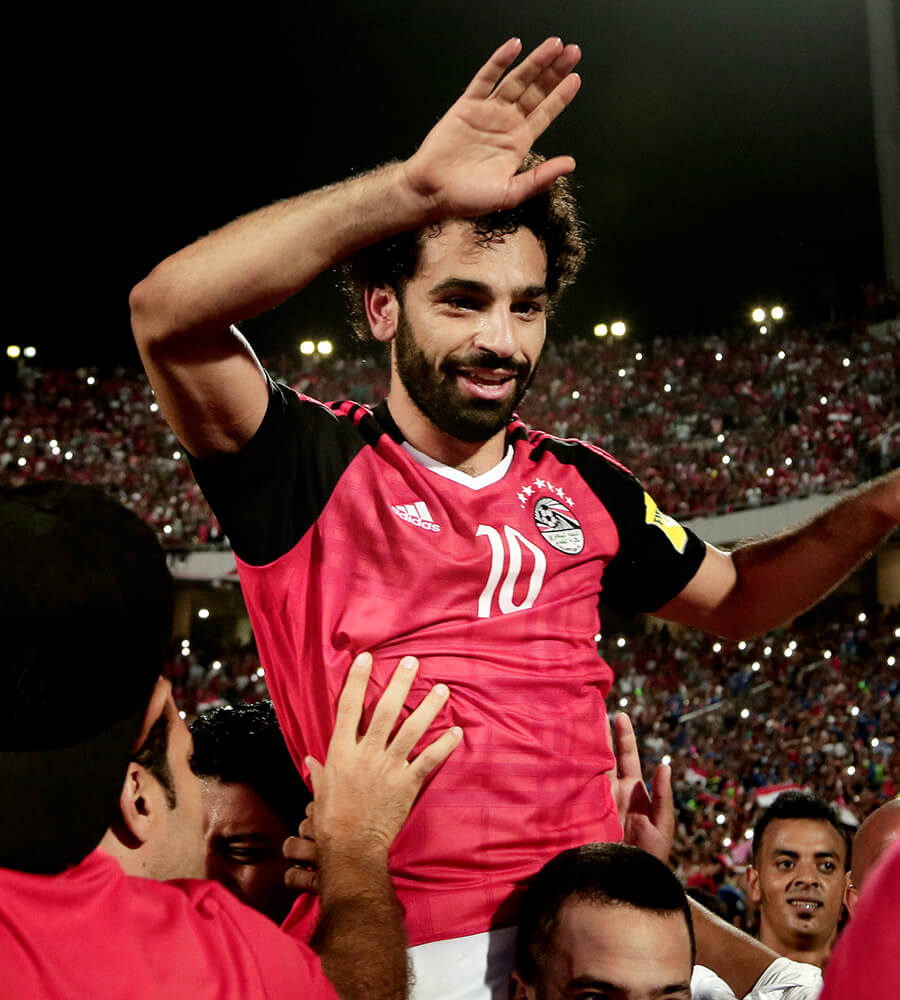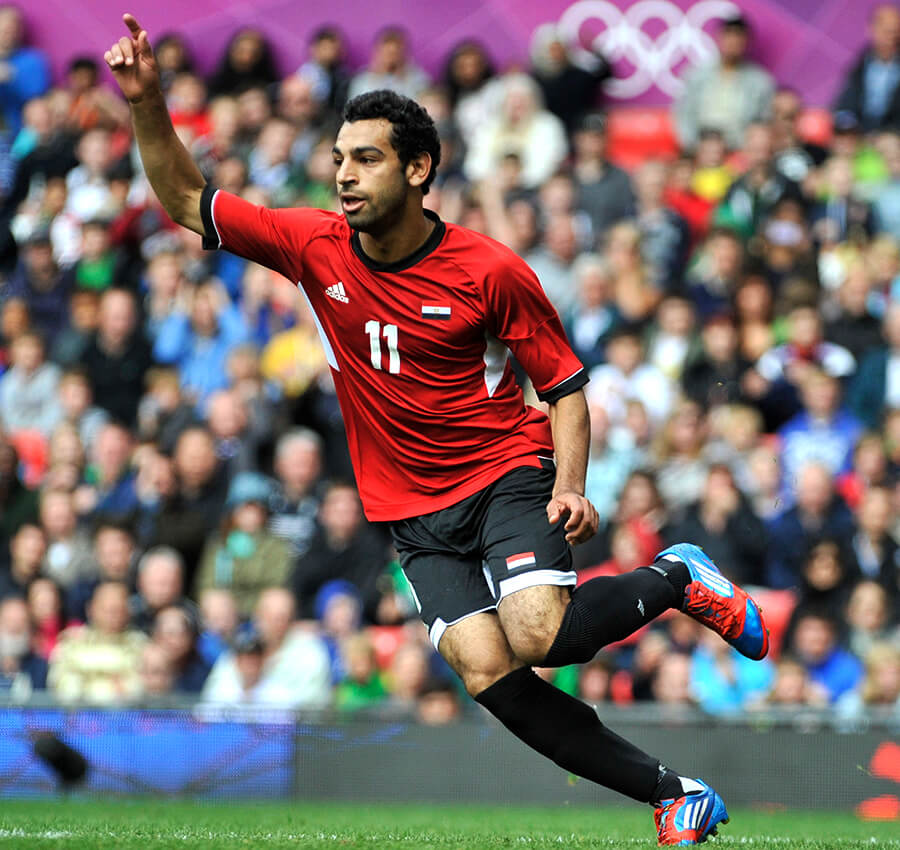Mohamed Salah smiles easy and begins most of his sentences with some variation of “to be honest.” The playfulness, though: I acknowledge the obvious—that Liverpool, which strode to the Champions League final, has been having a good season—and he shoots back with, “No, not really,” and then he grins and gives a look across the room, and everyone laughs. It is hard to be both startlingly earnest and consistently adored, and Mo Salah walks the line well.
A cappuccino arrives on his desk, and it takes several minutes before he finally brings the white mug to his lips. He’d been cradling the cappuccino since it arrived here, at a room inside of Liverpool’s Melwood training ground. This is where Salah—the man whose stardom has skyrocketed ever since his spectacular goalscoring run began last summer—has come to rest, converse. He is still dressed to play: a white Liverpool training jacket, black jogging pants, Adidas sneakers. His hair is piled high and immovable into winding black coils.
That hair. Its legend has grown almost as large as Salah himself. Larger than life, even. Fans in Liverpool wear wigs made to look like this signature puff of hair, and Salah seems often aware of the legend, running his fingers over and over his head. He looks as calm and confident in banter as he does on the pitch, where he registered 44 total goals in club competition this season, setting records for Liverpool and the Premier League.
As his shoulder heals from the Champions League loss, Salah will soon represent Egypt at the World Cup for the first time in a generation. “I will do my best to play from the beginning,” Salah would tell B/R in his first interview since the controversial injury against Real Madrid. But right now, he is looking out of the window longingly. He is trying to fathom the level expectations that rest on his shoulders when he dons his red and white Egyptian jersey.
“I’m always saying that when you wear the jersey of the national team, it’s something different, for any player in the world,” Salah tells me. He glances around a room cloaked in Liverpool regalia and issues a slight clarification: “But that doesn’t mean you play for your club like it’s...”

He waves a dismissive hand, and then he chuckles and expands on the idea with: “You play for your own country with your feeling, your emotion. It’s different. You don’t play the same number of games for your country that you do for your club. And so it feels like you are really fighting for your country. It’s a different feeling.” Salah stirs the foam that is arching toward the edge of his mug into a blizzard, and outside, the wind carries a clutch of leaves across the ridges of the metal roof and past our window. He watches this out of the corner of his eye. The Liverpool crest he wears on his chest reads, YOU’LL NEVER WALK ALONE.






